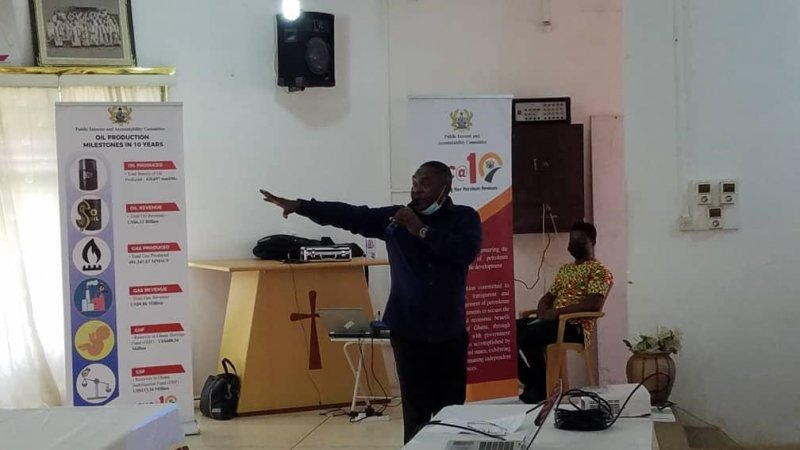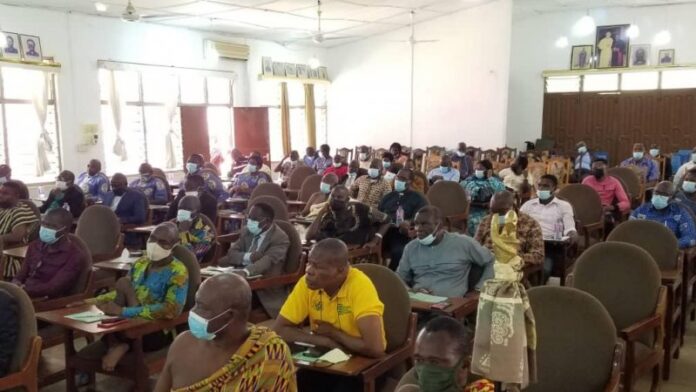The Public Interest and Accountability Committee (PIAC) says petroleum revenue should be focused on the absolute realisation of priority projects.
Mr Noble Wadzah, a former Member of PIAC, said directing resources into many initiatives and projects at a go undermined the effective use of petroleum revenues.
Speaking to the Ghana News Agency on the sidelines of a public forum in the Volta Region to mark the 10th Anniversary of the Committee, Mr Wadzah said coming from an exhaustive resource, interventions borne by petroleum revenue should be of viable impact and ensure value for money.
He said stakeholders were expected to reform oil revenue and seek a variety of funding sources for initiatives with recurrent expenditure such as education.
“Because petroleum revenues are coming from a depletable resource, what it means is that a time may come when they may no longer be available, and for that reason, it is important we focus on the spending,” he said.
“But our participation in the field so far, suggests that government has been spreading the resources so thinly, to the effect that it undermines effectiveness of the use of the revenue.”
Mr Wadzah said the Committee recognised projects including the Terminal Three of the Kotoka International Airport and some roads, using the “petro cedi”, which continued to benefit the nation in diverse ways.
“PIAC is looking at investing the petroleum revenue in a way that inures to the sustainable use and benefits of the nation. We are saying that the Free SHS is a recurrent expenditure, so it is important we diversify funding sources…,”he said.
The forum, among key observations, noted that petroleum resources had been used to tackle too many national problems at the same time, weakening its potential impacts on the socio-economic development of Ghana.
It, therefore, recommended fewer projects that satisfied priority, amidst the diversity of funding sources.
“PIAC believes that few Legacy Projects should be identified and supported by the Annual Budget Funding Amount (ABFA),” Mr Wadza said and called for a properly conducted impact evaluation of priority areas.

PIAC was born out of the Petroleum Revenue Management Act, Act 815 (2011) to ensure efficient use of the revenue for sustainable development.
The Committee is empowered to monitor compliance and create a platform for public discourse.
It reported that the nation realised a total petroleum revenue of 6.523 billion dollars from 2011 to 2020, which had been distributed as required by the Law.
Stakeholders at the forum lauded the Committee for a decade of endeavour and called on the Government to consider placing management of revenue from other mineral resources under its watch.
Mr Ernest Apau, the Ho West District Chief Executive, said institutions such as the National Commission for Civic Education should lead in informing and educating citizens on the use of oil revenue.
Togbe Kwaku Ayim, the Paramount Chief of Ziavi Traditional Council, who chaired the forum, said gains from the oil sector should be invested in areas that would benefit the youth.
GNA

